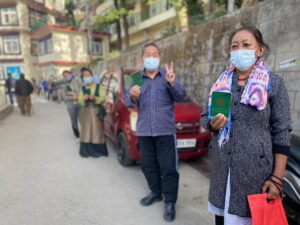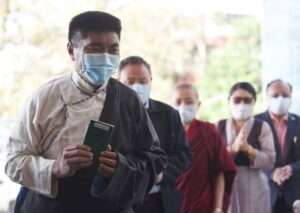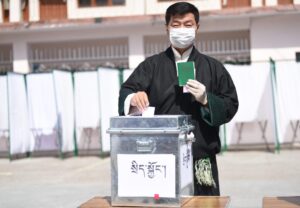
Photo: Lobsang Tibet
Tibetans living in exile across the world voted on April 11 to elect their next Sikyong (President) of the Central Tibetan Administration, also known as the Tibetan Government-in-exile, and 45 Chithues (parliamentarians). The final phase of the election saw over 83,000 Tibetans from 26 countries participate. For the post of Sikyong, people cast their vote between former Speaker Penpa Tsering and former North America representative Kelsang Dorjee Aukatsang.

Chief Election Commissioner Wangdu Tsering Pesur
Photo: CTA
Despite the restrictions and challenges imposed by the current Covid-19 pandemic, the election commissioner Pesur Wangdue Tsering confirmed that the elections ran smoothly in all 26 countries where Tibetans reside, and reported an increase in the voter register and voter turnout this year. In Nepal, during the preliminary election in January, voting ballots were confiscated but for final election they were able to successfully cast their votes. “I can announce happily that all the 26 different countries where we have conducted elections were operational and we hope that election proceeding run smoothly,” said Pesur Wangdue Tsering

Dr Lobsang Sangay
Photo: CTA
The incumbent Sikyong Dr Lobsang Sangay called the Election Day “a proud day” for Tibetans around the world saying, “By this, we are sending a message directly to Beijing that while they do not have democracy nor grant freedom to Tibetans in Tibet, however, under the great leadership of His Holiness the Dalai Lama, we, the Tibetans in exile have been given the gift of democracy”.
The 2021 general election is the third direct election of the Tibetan leadership in exile since the complete devolution of political authority by His Holiness the Dalai Lama in 2011.
Tibetans have been living in exile for over 60 years following China’s occupation of Tibet since 1959. The majority of exiled Tibetans live in India, with its government set up in Dharamshala in Himachal Pradesh – also the exile home of His Holiness the Dalai Lama.




 Print
Print Email
Email